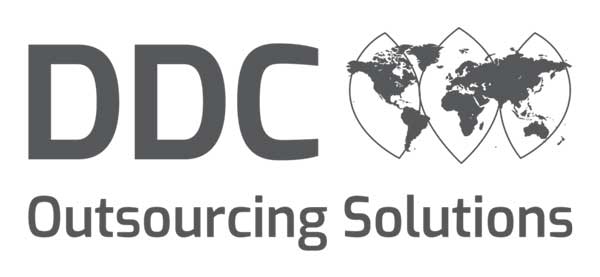In today’s dynamic business world, the value of data continues to rise. It’s the key to understanding your consumers, delivering exceptional service, spotting and eliminating inefficiencies, discovering opportunities, and enhancing business outcomes.
Knowing how to capture the right data and use it efficiently isn’t just helpful; it’s a necessity. Capturing and processing data still requires significant human intervention; whilst automation (in the form of Robotic Process Automation or RPA) and now AI continue to refine and enhance the process, it is yet to eradicate the need for data capture specialists.
These technological advancements have certainly, over the years, helped to greatly increase processing volumes and the speed at which they are handled. They minimise inaccuracies and can even help identify patterns. The question is, what does all this mean for the future of data capture workforces?
The Impact of AI on Data Capture Processes
Data capture has long stood as a pivotal process in the realm of information gathering. It encompasses the collection of data from various sources (text, images, PDFs, voice recordings, and more). The primary objective is to collect valuable data and convert it into a format that can be processed, analysed, sold, and so much more.
For years now, technological advancement has been revolutionising the data capture landscape. AI and automation tools have helped to drive an efficient, streamlined, and powerful process. In fact, the market for automatic data capture and identification tools is expected to grow to a value of $134.7 billion by 2032.
How AI Improves the Data Capture Process
AI-driven solutions offer sophisticated capabilities for the extraction, recognition, and interpretation of data, potentially minimising human intervention.
With artificial intelligence, companies can:
- Improve data quality: With adaptive learning and machine learning tools, companies can benefit from systems that automatically adjust processes and improve the accuracy and quality of the data captured for assessment.
- Translate raw data into insights: Data analysis is a complex process which requires significant expertise. While AI may not yet be able to match the skills of an experienced data analyst, it can help identify data and rapidly offer insights into potential trends and patterns, making the data captured by businesses more valuable.
- Streamline complex data capture: AI tools can capture complicated data from a variety of structured, semi-structured, and unstructured documents. Pre-processing tools can even annotate key data fields and ensure data is labelled correctly for analysts.
- Accelerate data capture: AI tools can capture data from systems, processes, and interactions in real time. This reduces the need for employees to spend endless hours creating notes and uploading documents into systems. Real-time tracking also ensures companies can maintain complete visibility into their operations.
- Automate data validation: Manually validating data can be a time-consuming and error-prone process. AI-based solutions can enhance the processing workflow, using templates and pre-implemented methods to validate and identify data. The right tools can even ensure data is stored in the right place or sent to the correct teams.
AI and Data Capture Experts: Better Together
So, if AI in the data capture landscape is so powerful, does it eliminate the need for data capture experts, such as data entry professionals and analysts? Simply put, the answer is a resounding no. While McKinsey suggests about 64% of data collection activities can be “automated”, many companies have discovered that the best results come from using AI tools and human skills in tandem.
AI can certainly help data capture experts accomplish more in less time and even improve the accuracy of data capture strategies. However, data capture experts are still necessary for many parts of the process. For instance, AI can use machine learning to attempt to determine which forms of data need to be captured for your business, but it can’t effectively separate the best insights for your business goals from endless volumes of data points.
AI tools also have a number of limitations. AI tools, despite their capabilities, do come with certain limitations. Even if they’re trained to detect and redact personally identifiable information from documents, there are instances where important details can be overlooked – particularly where the format of the data source varies or is inconsistent in structure. Some solutions can make mistakes when processing data, and others struggle to process certain forms of unstructured data with a high level of accuracy. Such limitations can have significant impacts on businesses when it comes to data protection regulations.
Additionally, AI can only handle so much of the data collection and analysis process. It can collect data rapidly but can’t always check it for correctness or convert information into valuable formats, consider medical data or allergen information, for example. The accuracy of this data is essential; mistakes can be a danger to life. Can we, or would we, ever be inclined to trust that process to ever go ahead without human interaction? Many of our client projects use a blend of OCR technology and human agents in a hybrid solution, leveraging both the advantages of technology and the skills of a data capture specialist. For example, OCR might read a form/document/label image of a product, and a human data capture agent perform a QA check to ensure the data aligns with processing rules and third-party regulations and corrects any OCR errors, thus feeding back to the OCR system and improving the technology.
Ultimately, AI is having a positive impact on the data capture landscape, just like it’s leading to progress in various other business operations and tasks. However, it’s simply a tool that can help to improve efficiency, scale data processes, and boost productivity. It’s not a replacement for human experts. AI should be seen as an assistant for data professionals.
It should empower these experts to be more effective, efficient, and accurate in their roles than ever before, allowing them to unlock better results for businesses. While AI is a powerful tool for positive change, it’s not a magic solution for every data entry or management problem. If you’re planning on implementing AI into your ecosystem, don’t rush it. Consider what you want to achieve and engage with those delivering that task currently; they are the data experts and will have valuable perspectives and insights into the best use of AI technology and where it can play the most effective role.
Take the time, consider the applications that can best benefit your business and teams, and make sure you’re leveraging the right combination of machine intelligence and human expertise.
Why not engage with an expert data capture outsourcer who can help you identify the right approach to solve your challenges and unlock value in your data?




